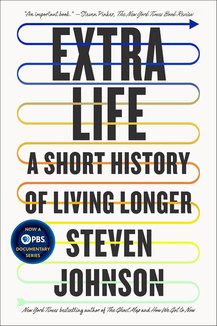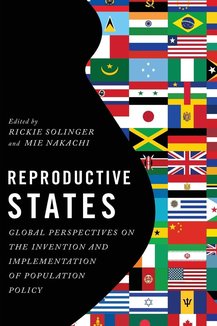Recommended Books

Extra Life: A Short History of Living Longer
Author:
Steven Johnson
ISBN 13:
978-0525538868
“Offers a useful reminder of the role of modern science in fundamentally transforming all of our lives.” —President Barack Obama (on Twitter) “An important book.” —Steven Pinker, The New York Times Book Review The surprising and important story of how humans gained what amounts to an extra life, from the bestselling author of How We Got to Now and Where Good Ideas Come From In 1920, at the end of the last major pandemic, global life expectancy was just over forty years. Today, in many parts of the world, human beings can expect to live more than eighty years. As a species we have doubled our life expectancy in just one century. There are few measures of human progress more astonishing than this increased longevity. Extra Life is Steven Johnson’s attempt to understand where that progress came from, telling the epic story of one of humanity’s greatest achievements. How many of those extra years came from vaccines, or the decrease in famines, or seatbelts? What are the forces that now keep us alive longer? Behind each breakthrough lies an inspiring story of cooperative innovation, of brilliant thinkers bolstered by strong systems of public support and collaborative networks, and of dedicated activists fighting for meaningful reform. But for all its focus on positive change, this book is also a reminder that meaningful gaps in life expectancy still exist, and that new threats loom on the horizon, as the COVID-19 pandemic has made clear. How do we avoid decreases in life expectancy as our public health systems face unprecedented challenges? What current technologies or interventions that could reduce the impact of future crises are we somehow ignoring? A study in how meaningful change happens in society, Extra Life celebrates the enduring power of common goals and public resources, and the heroes of public health and medicine too often ignored in popular accounts of our history. This is the sweeping story of a revolution with immense public and personal consequences: the doubling of the human life span.

The Bet: Paul Ehrlich, Julian Simon, and Our Gamble over Earth's Future
Author:
Paul Sabin
ISBN 13:
978-0300198973
Are we headed for a world of scarce resources and environmental catastrophe, or will innovation and markets yield greater prosperity In 1980, the iconoclastic economist Julian Simon challenged celebrity biologist Paul Ehrlich to a bet. Their wager on the future prices of five metals captured the public’s imagination as a test of coming prosperity or doom. Ehrlich, author of the landmark book The Population Bomb, predicted that rising populations would cause overconsumption, resource scarcity, and famine—with apocalyptic consequences for humanity. Simon optimistically countered that human welfare would flourish thanks to flexible markets, technological change, and our collective ingenuity. Simon and Ehrlich’s debate reflected a deepening national conflict over the future of the planet. The Bet weaves the two men’s lives and ideas together with the era’s partisan political clashes over the environment and the role of government. In a lively narrative leading from the dawning environmentalism of the 1960s through the pivotal presidential contest between Jimmy Carter and Ronald Reagan and on into the 1990s, Paul Sabin shows how the fight between Ehrlich and Simon—between environmental fears and free-market confidence—helped create the gulf separating environmentalists and their critics today. Drawing insights from both sides, Sabin argues for using social values, rather than economic or biological absolutes, to guide society’s crucial choices relating to climate change, the planet’s health, and our own.

Reproductive States: Global Perspectives on the Invention and Implementation of Population Policy
Authors:
Rickie Solinger
,
Mie Nakachi
ISBN 13:
978-0199311088
When it comes to government's role in personal matters such as family planning, most bristle at any interference from the State on how to exercise their reproductive rights. China's infamous "one child" policy is a well-known example of reproductive politics, but history is filled with other examples of governmental population control to advance its interests. Reproductive States is the first volume of a collection of case studies that explores when and how some of the most populous countries in the world invented and implemented state population policies in the 20th century. The authors, scholars specializing in reproductive politics, survey population policies from key countries on five continents to provide a global perspective. Regardless of the type of government or its cultural history, many of these countries have developed similar policies to control their populations and attempt to combat social problems such as poverty and hunger. However, the common denominator is that states have used women's bodies as a political resource. Far from being just an overseas problem, this volume illustrates how other countries have developed their strategies in response to goals and tactics driven by the United Nations and the United States. Due to fears of a post-World War II "population bomb" and uncertainty of how to deal with the world's poor after the Cold War, the U.S. and the Soviet Union led the charge among nations to devise strategies to control their populations, but in different ways. The U.S. and some European countries pressed the poor and ethnic minorities to limit reproduction. China's "one child" policy targeted all ranks of society, while Soviet women (who already had few rights) were under surveillance through state-planned services such as medical care and commodity distribution to detect pregnancy. Interweaving biopolitics, gender studies, statecraft, and world systems, Reproductive States offer reflections on the outcome of such policies and their legacies in our day.